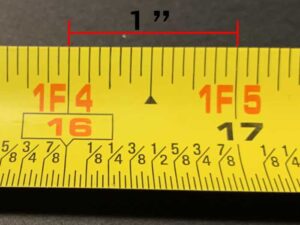Fish diet pescetarian – Embark on a culinary adventure with the pescetarian diet, where the bounty of the sea takes center stage. This unique dietary approach, combining the health benefits of fish with the principles of vegetarianism, offers a tantalizing fusion of flavors and nourishment.
From the Mediterranean shores to the bustling markets of Asia, pescetarianism has gained widespread popularity, captivating individuals seeking a balanced and sustainable lifestyle. Join us as we delve into the depths of this intriguing dietary choice, exploring its nutritional advantages, environmental implications, and delectable culinary possibilities.
Introduction
Pescetarianism is a dietary practice that involves consuming fish and other seafood while excluding meat and poultry from the diet. Individuals who follow a pescetarian diet are often referred to as “pescetarians.” This dietary choice is gaining popularity due to various factors, including health concerns, environmental considerations, and ethical beliefs.
The prevalence of pescetarianism varies across different regions and cultures. Studies have shown that it is more common in coastal areas and countries with high seafood consumption. In the United States, for example, approximately 2-3% of the population identifies as pescetarian.
Motivations for Adopting a Pescetarian Diet, Fish diet pescetarian
- Health benefits:Fish is a rich source of omega-3 fatty acids, which have been linked to various health benefits, including reduced risk of heart disease, stroke, and dementia.
- Environmental concerns:The production of meat and poultry has a significant environmental impact, including greenhouse gas emissions, water consumption, and deforestation. Pescetarianism offers a more sustainable dietary option by reducing the consumption of animal products.
- Ethical considerations:Some individuals adopt a pescetarian diet due to ethical concerns about the treatment of animals in factory farming.
Nutritional Considerations
A pescetarian diet offers a wealth of nutritional benefits, providing essential nutrients like omega-3 fatty acids, protein, and vitamins. However, it’s important to be aware of potential nutrient deficiencies and consider ways to mitigate them.
Nutrient Benefits
- Omega-3 Fatty Acids:Fish is an excellent source of omega-3 fatty acids, particularly EPA and DHA, which are essential for heart, brain, and eye health.
- Protein:Fish is a lean protein source, providing essential amino acids for muscle growth and repair.
- Vitamins:Pescatarians benefit from vitamins B12, D, and selenium, which are found in fish and seafood.
Potential Nutrient Deficiencies
- Vitamin B12:Vitamin B12 is primarily found in animal products, so pescatarians may need to supplement or consume fortified foods.
- Iron:Fish is a good source of iron, but it’s less absorbable than iron from red meat. Combining fish with vitamin C-rich foods can enhance iron absorption.
- Calcium:Pescatarians who limit dairy consumption may need to increase their intake of calcium-rich foods like leafy greens, fortified plant-based milk, or supplements.
Fish vs. Other Protein Sources
| Nutrient | Fish | Meat | Plant-Based |
|---|---|---|---|
| Protein (per 100g) | 20-25g | 25-30g | 15-20g |
| Omega-3 Fatty Acids | High | Low | None |
| Saturated Fat | Low | High | Low |
| Iron | Moderate | High | Low |
| Vitamin B12 | High | High | None |
Compared to meat, fish offers similar protein content but with lower saturated fat and higher omega-3 fatty acids. Plant-based protein sources provide less protein and omega-3s, but they are typically higher in fiber and antioxidants.
Types of Fish to Include
Pescetarians can choose from a wide variety of fish to meet their nutritional needs. Different types of fish offer unique nutritional profiles and sustainability considerations.
When selecting fish, it’s important to consider both the nutritional value and the sustainability of the species. Opting for fish that are low in mercury and high in omega-3 fatty acids, while also considering the impact of fishing practices on the environment, ensures a healthy and responsible dietary choice.
Fatty Fish
- Salmon:Rich in omega-3 fatty acids, protein, and vitamin D. It’s a sustainable choice due to responsible farming practices.
- Tuna:A good source of omega-3 fatty acids, protein, and vitamin B12. Choose skipjack or albacore tuna for lower mercury levels.
- Mackerel:High in omega-3 fatty acids, protein, and vitamin B12. It’s a sustainable option as it’s often caught using environmentally friendly methods.
Lean Fish
- Cod:A low-fat fish that’s a good source of protein and vitamin B12. It’s a sustainable choice as it’s managed under strict quotas.
- Tilapia:A versatile fish that’s high in protein and low in fat. It’s often farmed, but concerns have been raised about its sustainability.
- Flounder:A lean fish that’s a good source of protein and vitamin B12. It’s a relatively sustainable choice as it’s often caught using responsible fishing methods.
Shellfish
- Shrimp:A low-fat source of protein and a good source of selenium. It’s often farmed, so sustainability concerns should be considered.
- Oysters:Rich in zinc, vitamin B12, and omega-3 fatty acids. They’re a sustainable choice as they’re often farmed in a way that minimizes environmental impact.
- Mussels:A good source of protein, iron, and vitamin C. They’re often farmed in a sustainable manner.
To ensure a balanced and healthy diet, pescetarians should aim for variety in their fish consumption. Incorporating different types of fish into their meals provides a range of essential nutrients and reduces the risk of overconsumption of any one type.
Additionally, it’s important to consume fish in moderation. The American Heart Association recommends eating fish at least twice a week, but not more than six ounces per week, to optimize health benefits while minimizing potential risks.
Whether you’re curious about dietary choices or simply want to expand your culinary horizons, understanding the difference between vegan, vegetarian, and pescatarian diets is essential. While all three prioritize plant-based foods, they vary significantly in their consumption of animal products. To help you navigate this culinary landscape, we’ve created a comprehensive guide that delves into the nuances of each dietary approach. Discover the difference between vegan and vegetarian and pescatarian diets and make informed choices that align with your lifestyle and values.
Meal Planning and Recipes: Fish Diet Pescetarian
Meal planning and recipe ideas are essential for a healthy and satisfying pescetarian diet. By incorporating a variety of fish, fruits, vegetables, and whole grains, you can create delicious and nutritious meals that meet your dietary needs.
Sample Meal Plan
Here’s a sample meal plan for a pescetarian diet that includes a variety of food groups:
- Breakfast:Oatmeal with berries and nuts, or whole-wheat toast with avocado and smoked salmon
- Lunch:Salad with grilled fish, mixed greens, vegetables, and a light dressing, or a lentil soup with whole-wheat bread
- Dinner:Grilled salmon with roasted vegetables and brown rice, or a vegetarian chili with cornbread
- Snacks:Fruit, vegetables, yogurt, or nuts
Recipe Ideas
Here are some recipe ideas for healthy and flavorful pescetarian dishes:
- Pan-Seared Tilapia with Lemon and Herbs:Season tilapia fillets with lemon juice, olive oil, salt, and pepper. Pan-sear until golden brown on both sides.
- Baked Cod with Roasted Vegetables:Place cod fillets on a baking sheet lined with parchment paper. Surround with roasted vegetables such as broccoli, carrots, and potatoes.
- Quinoa Salad with Smoked Salmon:Combine cooked quinoa, smoked salmon, chopped vegetables, and a light vinaigrette.
Tips for Incorporating Fish
Here are some tips for incorporating fish into meals and snacks throughout the day:
- Choose sustainable fish:Opt for fish that are low in mercury and sustainably caught.
- Vary the types of fish:Include a variety of fish in your diet, such as salmon, tuna, mackerel, and sardines.
- Cook fish in healthy ways:Grill, bake, or steam fish to preserve its nutrients.
- Add fish to salads, sandwiches, and wraps:Incorporate fish into your meals by adding it to salads, sandwiches, or wraps.
Environmental Impact
Adopting a pescetarian diet offers significant environmental advantages over meat-based diets. One of the most notable benefits is its reduced carbon footprint. The production of animal products, particularly beef and other ruminant meats, contributes substantially to greenhouse gas emissions, primarily due to methane production during digestion and the clearing of forests for grazing land.
In contrast, fish and seafood have a lower carbon footprint compared to meat. This is because fish are lower on the food chain, requiring less energy and resources to produce. Additionally, fish farming practices can be more environmentally sustainable than traditional livestock farming, as they often utilize renewable energy sources and implement waste management systems to minimize pollution.
Sustainable Fishing Practices
To ensure the sustainability of our oceans and fish populations, it’s crucial to choose fish from environmentally responsible sources. Look for certifications from organizations such as the Marine Stewardship Council (MSC) or the Aquaculture Stewardship Council (ASC), which indicate that the fish has been caught or farmed using sustainable practices.
Additionally, consider the following tips when selecting fish:
- Opt for fish that are abundant and have healthy population levels.
- Choose smaller fish over larger ones, as they have shorter lifespans and reproduce more frequently.
- Avoid fish that are caught using destructive fishing methods, such as bottom trawling or drift nets.
- Support local fisheries and purchase fish that are caught or farmed in your region.
End of Discussion
As we bid farewell to our exploration of the pescetarian diet, let us remember its profound impact on our health, the environment, and our taste buds. Whether you’re a seasoned pescetarian or simply curious about this unique dietary approach, we hope this discourse has provided valuable insights and inspiration.
May your culinary journeys be filled with the vibrant flavors and boundless health benefits that the pescetarian diet offers. Until next time, continue to explore the world of food with an open heart and a curious palate.
Detailed FAQs
What are the key nutritional benefits of a pescetarian diet?
The pescetarian diet is renowned for its abundance of omega-3 fatty acids, essential for heart and brain health. It also provides a rich source of protein, vitamins, and minerals, including vitamin B12, iron, and zinc.
Are there any potential nutrient deficiencies associated with a pescetarian diet?
While the pescetarian diet offers a wide range of nutrients, it’s important to be aware of potential deficiencies in vitamin B12, iron, and calcium. These can be easily mitigated by consuming fortified foods, supplements, or including other sources of these nutrients in the diet.
What types of fish are recommended for a pescetarian diet?
Fatty fish, such as salmon, tuna, and mackerel, are excellent sources of omega-3 fatty acids. Other healthy options include lean fish like tilapia, cod, and halibut. It’s important to choose fish from sustainable sources and vary your choices to ensure a well-rounded intake of nutrients.
How can I incorporate fish into my pescetarian meals?
Grilled, baked, or steamed fish can be enjoyed as a main course. Fish can also be added to salads, sandwiches, and soups for a boost of flavor and nutrition. Experiment with different herbs, spices, and marinades to create delicious and satisfying pescetarian dishes.
What are the environmental benefits of a pescetarian diet compared to a meat-based diet?
Fish production generally has a lower environmental impact than meat production. Fish farming can help reduce pressure on wild fish stocks, and choosing sustainable seafood options supports responsible fishing practices. By opting for a pescetarian diet, you can contribute to the preservation of our oceans and marine ecosystems.





Leave a Comment